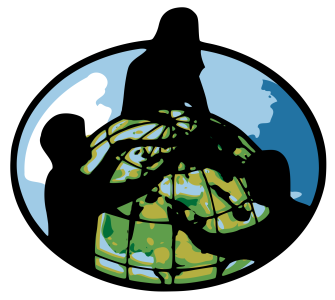At the end of the year, Education Week is kind enough to let us know what our top read stories of were. It’s a nice way to consider what worked and which topics most resonated with our readers.
This year, I had a clear winner:

When I sat down to write about To Kill A Mockingbird, I was in an interesting place: I am at a new school (and making the shift from public to private education), teaching a new grade a text that I knew like the back of my hand. The culture was different, but what made the book powerful was a lesson that I learned not just in my writing and in my practice, but also in my life: the blessing is outside our comfort zone.
I first heard this phrase from runner and creator of Black Girls Run Ashley Hicks in an episode of NPR’s ‘On Being,’ and it’s something I’ve held in my heart for a while now. This year, I felt like I had some of my most successful discussions around To Kill A Mockingbird, largely because I forced myself to address and discuss things with my students that I knew might make them-- and me-- a little bit uncomfortable. It did, but it also led to a higher level of positive feedback around the text than I’ve had in years.
In a job where routines are best practice and consistency is key, it’s easy to get trapped in what feels comfortable and normal. It’s understandable to continue what we think is working. Still, it is essential that we question what we’re calling “normal” in our classrooms and in our schools. Is our normal based on a healthy, culturally empowering environment? Or is our normal based on systems of dominant and, inevitably, oppressive education systems that stifle our students’ ability to reach their full potential?
Complacency is, in many ways, what has allowed the hegemony to perpetuate systems of power in our lives. Communities that “have” continue to have more, and those who “have not” continue to be stripped of their ability to grow and succeed. This includes our schools as well. Complacency is what allows us to look at a culturally-deaf curriculum and accept it is “what we’ve always done.” Complacency is what tells teachers to accept bad practices and low salaries as “the way it is.” Complacency is what tells us to continue treating education as a mere “distribution of knowledge,” because that’s what the system has been trying to reduce teachers to for generations.
And frankly, that’s not good enough anymore. The tide is slowly turning, and we need to start embodying that in our classrooms as well as our hearts. Change only happens when we actually believe things can be different, and the best way to show that belief is to put it into action.
When we talk about being thoughtful educators, we can’t just look at the routines we do with our students each day, but the way we are living out our calling and holding our colleagues accountable to do the same. When we talk about teaching our students to be “critical thinkers,” we have to think about what we are asking them to be critical of. It can’t just be a text or a math problem, but it should be of the systems and world that we live in (including our own classrooms). It doesn’t necessarily feel “comfortable” to open ourselves up to that kind of feedback, but it is ultimately the kind of recentering of our work that is essential if we want to create a better world for our kids.
Over the past few years, I know I have gotten complacent in a few ways. Beyond my own life changes, I transitioned to a new school which, while wonderful, is always a little overwhelming. In 2018, I am eager to recommit myself to pushing outside my own comfort zone in my practice. This isn’t just so that I can be a better teacher, but so that I can actually do what I am called to: educate and prepare my students for the world they will face outside my classroom that is anything but comfortable.
I wrote earlier this year that we should “love our kids. Let’s love them enough to teach them how to handle discomfort.” I am holding myself to that, and I also want to love myself and my work in the same way too. I want to love them enough that I see discomfort as part of the blessing that comes with growth and discovery. I want to love them enough to see failure as, ultimately, part of the joy of being a teacher.
How many jobs affect change so directly? How many lines of work allow those involved to so clearly impact the future of our world? Our work is important, and we must honor that import with the full measure of our devotion and a willingness to do the hard things and have the tough conversations.
So, I hope 2018 is joyful, full of laughter, and a little bit uncomfortable. We deserve it, yes, but, more importantly, our students deserve it too.

Photo courtesy of the author.
My top five of 2017:
- The False Notion of History as Past
- For Black History Month, Study Black Voices Every Day
- Honesty in the Fight: What ‘Game of Thrones’ Teaches Us About Education
- Walking Farther Together: In Defense of the Whole-Class Novel


